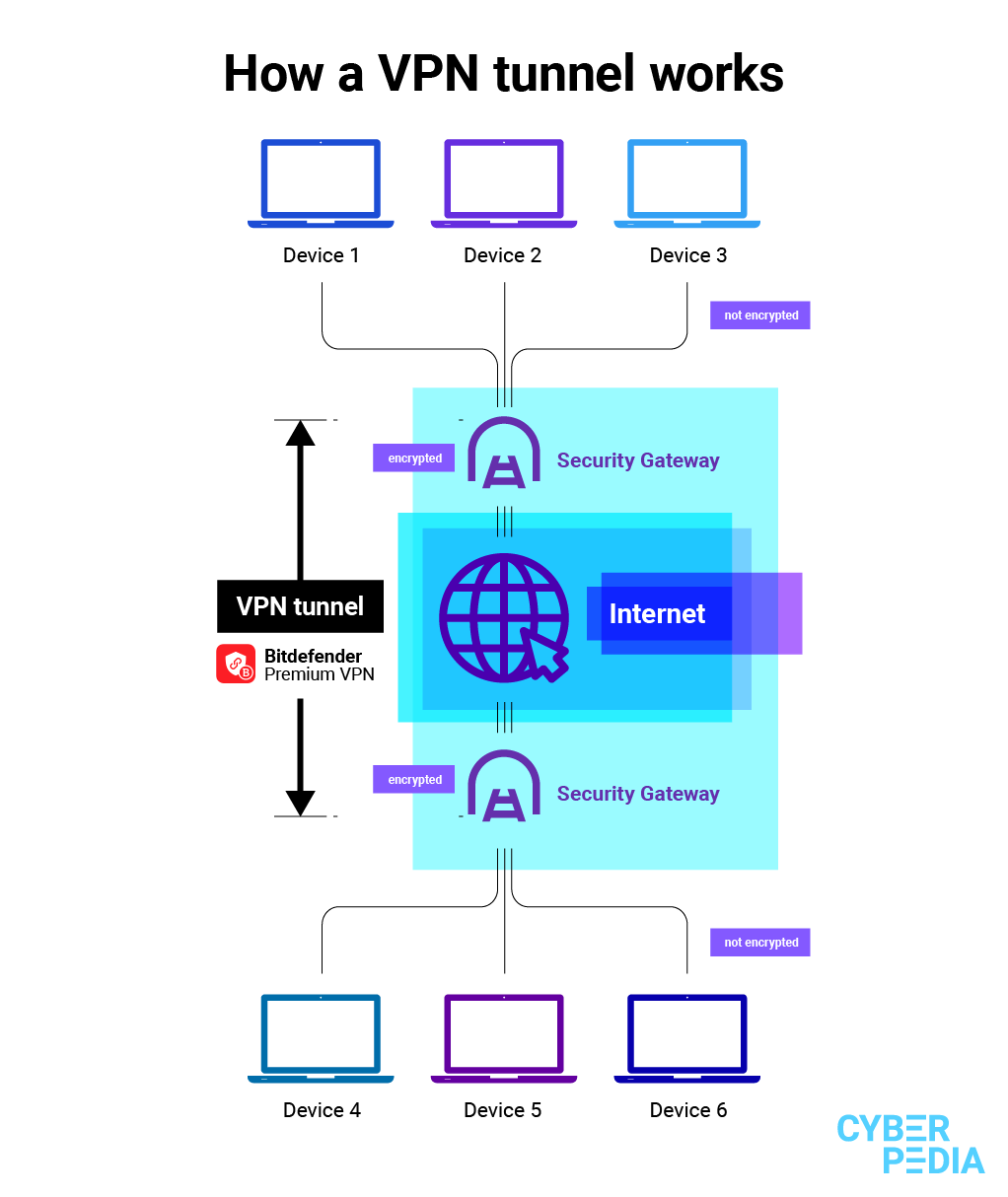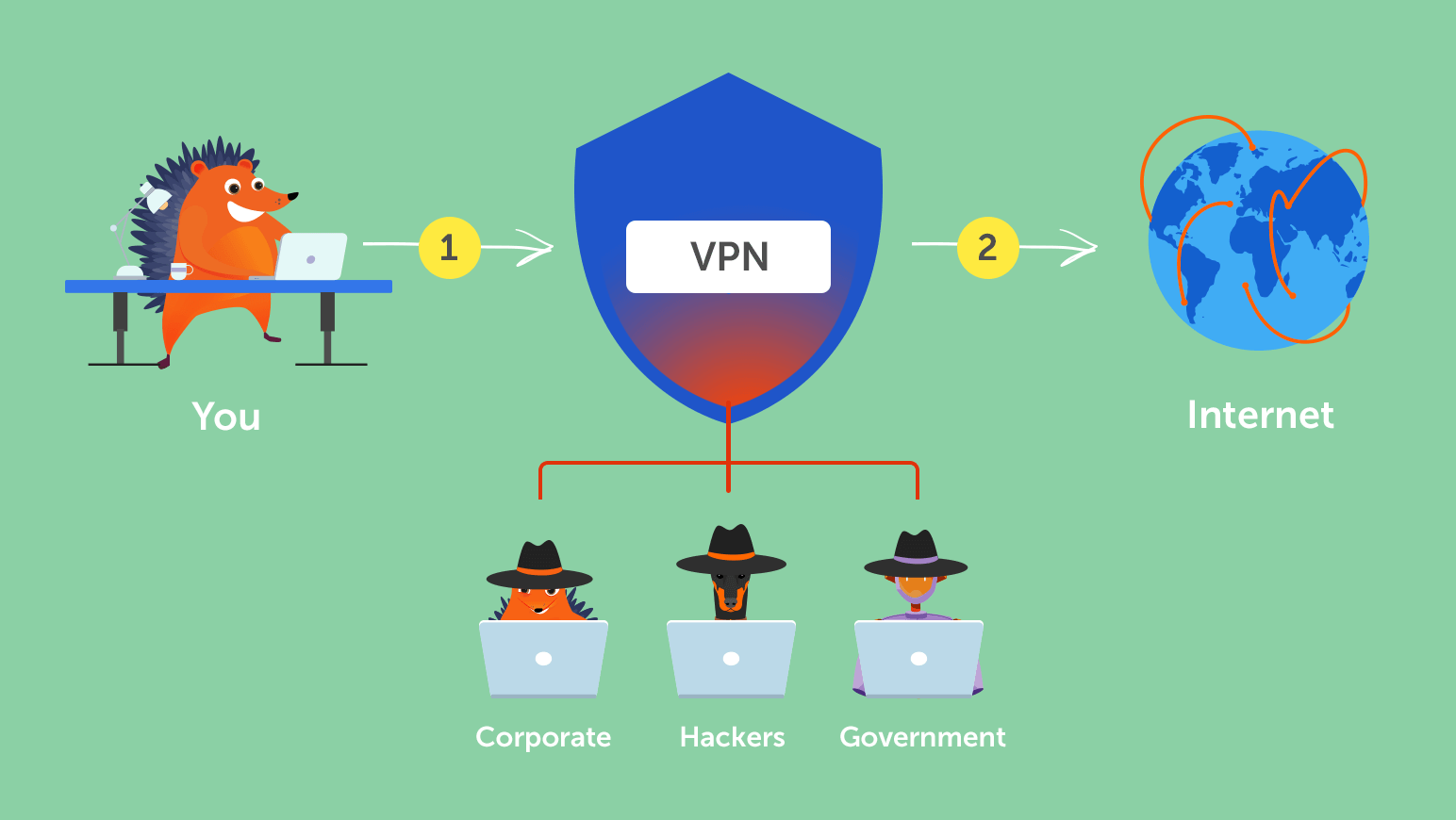A Virtual Private Network (VPN) is a tool that helps protect your online privacy. It keeps your data safe and secure when you use the internet. But how does a VPN really work? Let’s break it down step by step.
What is a VPN?
A VPN is like a secure tunnel for your internet connection. It connects your device to the internet through a private server. This helps to hide your real IP address. Your IP address shows where you are online. Hiding it keeps your location private.
Why Do People Use a VPN?
People use VPNs for many reasons:
- To stay safe while using public Wi-Fi.
- To access blocked websites.
- To keep their online activities private.
- To protect personal data from hackers.
How Does a VPN Work?
Now, let’s see how a VPN works in detail.
1. Connecting To The Internet
When you connect to the internet, your device sends data to websites. Normally, this data travels directly from your device to the website. But with a VPN, things change.
2. Choosing A Vpn Server
First, you open your VPN app. Then, you choose a server. This server can be in another city or country. Your internet traffic will go through this server. This makes it look like you are browsing from that server’s location.
3. Encrypting Your Data
Next, the VPN encrypts your data. Encryption is like a secret code. It makes your data unreadable to others. Even if someone tries to see your data, they will not understand it.
4. Sending Data Through The Tunnel
Your data travels through a secure tunnel. This tunnel keeps your data safe from anyone who might try to see it. Only you and the VPN server can read the data.
5. Reaching The Website
After the data reaches the VPN server, it is sent to the website you want to visit. The website thinks the request came from the VPN server, not from you. This keeps your real IP address hidden.
6. Getting Data Back
When the website sends data back, it goes to the VPN server first. Then, the VPN server sends this data back to you. This way, your online activities stay private.
The Benefits of Using a VPN
Using a VPN has many advantages:
- Online Privacy: Your online actions stay private.
- Security: Protects your data from hackers.
- Access to Content: Reach websites that might be blocked.
- Safe Browsing: Keeps you safe on public Wi-Fi.
Types of VPN Protocols
VPNs use different protocols to connect and protect data. Here are a few common types:
- OpenVPN: Very secure and widely used.
- IPSec: Works well for securing data.
- L2TP: A combination of two protocols for more security.

Choosing a VPN
Choosing the right VPN is important. Here are some tips:
- Look for a good reputation.
- Check for strong encryption.
- Read reviews from other users.
- Make sure it has a no-logs policy.
Limitations of VPNs
While VPNs are great, they have some limitations:
- Not all VPNs are fast.
- Some websites block VPN traffic.
- VPNs can sometimes be expensive.
Frequently Asked Questions
What Is A Vpn And How Does It Work?
A VPN, or Virtual Private Network, creates a secure connection over the internet. It protects your data by encrypting it.
Why Should I Use A Vpn?
Using a VPN enhances your online security and privacy. It hides your IP address and protects your information from hackers.
Can A Vpn Improve Internet Speed?
A VPN can sometimes improve internet speed by reducing network congestion. However, it may also slow down your connection depending on the server.
Is It Legal To Use A Vpn?
Yes, using a VPN is legal in most countries. Some regions may have restrictions, so check local laws.
Conclusion
A VPN is a useful tool for online safety. It helps protect your privacy and keep your data secure. By understanding how a VPN works, you can make better choices online. Always choose a reliable VPN that fits your needs.

FAQs
1. Is A Vpn Legal?
Yes, using a VPN is legal in most countries. However, some countries have restrictions. Always check local laws.
2. Can A Vpn Slow Down My Internet?
Sometimes, a VPN can slow down your internet. This happens due to the extra steps of encrypting data. Choose a fast VPN to reduce this issue.
3. Do I Need A Vpn At Home?
Using a VPN at home is a good idea. It adds extra security for your online activities. It is especially important if you use public Wi-Fi.
4. Can I Use A Free Vpn?
Free VPNs are available but may have risks. They might not protect your data well. Paid VPNs usually offer better security and privacy.
5. How Do I Set Up A Vpn?
Setting up a VPN is simple. Download the VPN app, create an account, and follow the instructions. Most VPNs have easy-to-use guides.
